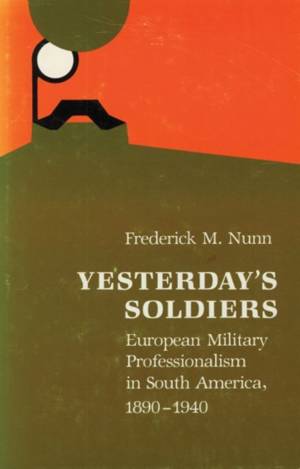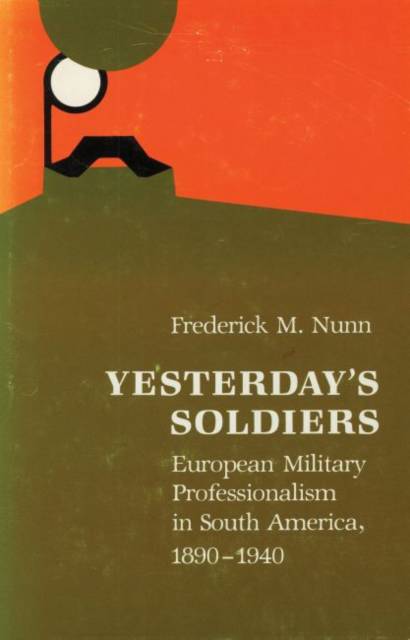
- Afhalen na 1 uur in een winkel met voorraad
- Gratis thuislevering in België vanaf € 30
- Ruim aanbod met 7 miljoen producten
- Afhalen na 1 uur in een winkel met voorraad
- Gratis thuislevering in België vanaf € 30
- Ruim aanbod met 7 miljoen producten
Zoeken
Yesterday's Soldiers
European Military Professionalism in South America, 1890-1940
Frederick M Nunn
Hardcover | Engels
€ 91,95
+ 183 punten
Omschrijving
Between 1890 and World War II, South America experienced the unsettling first stages of modernization. During this half-century of economic, political, and social change, the armies of Argentina, Brazil, Chile, and Peru underwent a process of professionalization as European military missions transformed their officer corps into copies of French and German officialdom. In so doing, European officers inculcated their ideals and values, thought and self-perception--their professionalism--in countries historically vulnerable to militarism. Based mainly on a comprehensive examination of European and South American military literature, this study describes the significant contribution of European military professionalism to South American professional militarism. Nunn not only details the workings of the French missions in Brazil and Peru and the German missions in Argentina and Chile, but gives great emphasis to the themes and topics that most concerned the European mentors and their overseas disciples. He demonstrates convincingly that much of their professional literature was based on a yearning for an idealized past, discontent with an unsatisfactory present, and apprehension about a future that might threaten the most cherished of traditional officer-corps principles and aims. The study ends with World War II, yet is makes an important contribution to our understanding of South American history since 1940. The military organizations of the four countries considered here confronted what they perceived to be the major problems of their modernizing nations with solutions learned from their European teachers. Since 1940, they have resorted to golpes de estado--most notably the post-1964 institutional golpes--in order to impose forcibly some of those same solutions. Thus, despite increased U.S. influence, many of the programs implemented by military regimes in the latter half of this century bear the indelible stamp of "yesterday's soldiers."
Specificaties
Betrokkenen
- Auteur(s):
- Uitgeverij:
Inhoud
- Aantal bladzijden:
- 365
- Taal:
- Engels
Eigenschappen
- Productcode (EAN):
- 9780803233058
- Verschijningsdatum:
- 1/02/1983
- Uitvoering:
- Hardcover
- Formaat:
- Genaaid
- Afmetingen:
- 145 mm x 223 mm
- Gewicht:
- 635 g

Alleen bij Standaard Boekhandel
+ 183 punten op je klantenkaart van Standaard Boekhandel
Beoordelingen
We publiceren alleen reviews die voldoen aan de voorwaarden voor reviews. Bekijk onze voorwaarden voor reviews.











